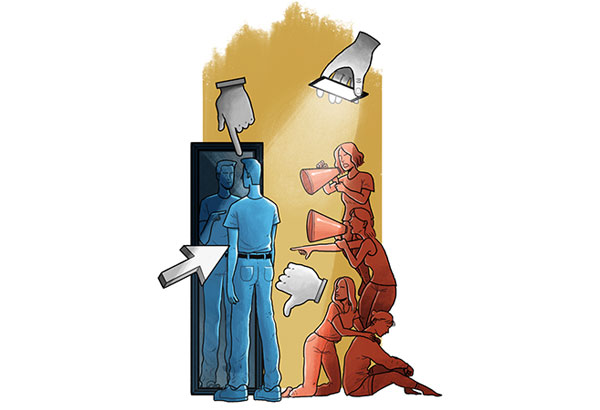Wonder Women

Illustration by Rard Almario
MANILA, Philippines — For the first time ever, I questioned my own feminism. When Supreme’s editorial assistant Chel was relaying to me news of sexual allegations called against some personalities in the local music scene, I had a couple of realizations. One: that Twitter was a valid space not only for presidents to make public comments, but also for people to come forward with issues of harassment. Two: that me and Chel, though only about eight years apart and largely considered in the same generation (hah), have come to see feminism in two different ways. And three: that I wasn’t sure how I felt about all this.
As Chel captivatingly read to me every tweet with as much passion and gusto and anger as the girls online had warranted, I sat there listening with more questions in my head than feelings. Since the riveting flood of allegations in the wake of Harvey Weinstein, sexual misconduct had become a hot topic locally too, when a few weeks back, two boys (also from the music industry) had an online debacle: one of them allegedly harassed the other’s girlfriend, and he was being called out in public for it. To the alleged perpetrator’s defense: he was only flirting, and he didn’t know that the girl had a boyfriend. The context being: they were at a bar, and the guy being chummy admitted he was honestly trying to hit on her.
And here is where the lines become blurrier for me, and drawing them is where I seem to find myself having a hard time. When is a guy just trying to get laid, and when does he get called out for sexual offense?
I can’t help but remember the movie The Crucible when I see how call-out culture has formed, particularly on Twitter in the Philippines. In The Crucible, a dramatized, fictionalized take on the Salem witch trials, a group of young girls makes false accusations against certain people in town, accusing them of witchery. Fearing the unknown, the town leaders take the girls’ word as gospel truth, and those called out are prosecuted without proper investigation, on the basis of “the girls said so.” The film is based on the stage play by Arthur Miller, written in the 1950s as an allegory for McCarthyism: the practice of making accusations of Communist subversion or treason without proper regard for evidence.
I’m not saying that the girls who have come forward with allegations are making false accusations — lord, no (in fact, bringing up this very comparison makes me feel bad). I am just saying that the very nature of the online persecution feels much like the public witch-hunt: When the allegations of the girls came out, no one worked to investigate or substantiate them — to reach out to the women involved to find out the true context of the claim before calling, “Sexual offense!” And this process is requisite to any form of indictment. We only validated their word as truth when band members themselves came forward with admission and apologies.
I couldn’t help but also feel sympathy for the men who had been put under this spotlight. And feeling sympathy made me feel like a bad woman, like I had broken the girl code and just written away my rights to call myself a feminist. Some of the allegations were not essentially criminal (some were). Many of the girls were angry at the objectification, that they were viewed as sex objects. But is it sexual assault? Not really. Is it necessary to call out? For me, perhaps in some instances. But to the young women of today, it’s a glaring YES.
This brings me to my fourth realization, actually: that this is where the new generation of women wants to take it, this generation that has grown up with social media — the “call out” culture, with story after story after story of Harvey Weinstein, Bill Cosby, Woody Allen, Louis CK …. I mean, when you look at it this way, it’s only fair that they are allowed to react this way, right?
I believe that feminism has many forms and is always adapting to the times; that true feminism is not so much a set of beliefs, or about what is empowering and what’s not; for me, it’s about the freedom for women to make their own educated, informed choices — whatever those choices may be. If younger women want to call men out for gross behavior, then perhaps it is their form of empowerment. Because I grew up with Sex And the City — and the way for women to deal with gross behavior was to play the game, too, à la Carrie Bradshaw: flirt unapologetically, engage without being emotionally attached, and don’t call them back when you don’t want to.
I was feeling bad for the bands that were called out for some time, thinking that douchebag behavior was something we just frowned upon, but not necessarily crucified. Another empowered girl friend even said, “Pulling them out from festivals was a bit much, don’t we just send them to training?”
But then, I think about the many times that the excuse “it’s just men being men” was used, and how it turned out, I was just using the same excuse for them. If future generations of boys stop being douchebags completely, for fear that some girl will wage war on Twitter against them — then hell, why should I be uncomfortable about that?















